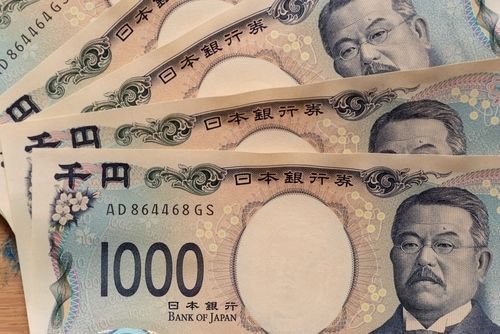USD/JPY attracts some sellers below 151.00 as Japan’s Tokyo CPI inflation accelerates in November

USD/JPY weakens to near 150.95 in Friday’s early Asian session, down 0.35% on the day.
The hotter Japan’s Tokyo CPI data could support the case for a BoJ rate hike at its December meeting.
The cautious stance of the Fed might cap the pair’s downside.
The USD/JPY pair loses traction to around 150.95 during the early Asian session on Friday. The Japanese Yen (JPY) edges higher after the hotter-than-expected Japan’s Tokyo Consumer Price Index (CPI) inflation report for November.
Data released by the Statistics Bureau of Japan on Friday showed that the headline Tokyo Consumer Price Index (CPI) climbed by 2.6% YoY in November, compared to 1.8% in the previous month. Meanwhile, the Tokyo CPI ex Fresh Food, Energy rose by 2.2% YoY in November versus 1.8% prior. Tokyo CPI ex Fresh Food increased 2.2% YoY in November, compared to a 1.8% increase in October, and was above the market consensus of 2.1%.
The core CPI has stayed above the Bank of Japan’s (BoJ) 2% target and kept alive market expectations for a near-term interest rate hike. This, in turn, boosts the JPY and creates a headwind for USD/JPY. BoJ Governor Kazuo Ueda stated the Japanese central bank will keep raising rates if inflation remains on track to stably hit 2% as it projects.
On the other hand, Wednesday's US PCE data indicated that the progress on lowering inflation appears to have stalled in recent months, which could diminish the expectation for the Federal Reserve (Fed) to cut interest rates in 2025. This might trigger a modest bounce in the US bond yields, which provides some support to the Greenback. The markets are now pricing in nearly 62.8% odds that the Fed will cut rates by a quarter point in December, up from 55.7% earlier this week, according to the CME FedWatch Tool.
Japanese Yen FAQs
The Japanese Yen (JPY) is one of the world’s most traded currencies. Its value is broadly determined by the performance of the Japanese economy, but more specifically by the Bank of Japan’s policy, the differential between Japanese and US bond yields, or risk sentiment among traders, among other factors.
One of the Bank of Japan’s mandates is currency control, so its moves are key for the Yen. The BoJ has directly intervened in currency markets sometimes, generally to lower the value of the Yen, although it refrains from doing it often due to political concerns of its main trading partners. The BoJ ultra-loose monetary policy between 2013 and 2024 caused the Yen to depreciate against its main currency peers due to an increasing policy divergence between the Bank of Japan and other main central banks. More recently, the gradually unwinding of this ultra-loose policy has given some support to the Yen.
Over the last decade, the BoJ’s stance of sticking to ultra-loose monetary policy has led to a widening policy divergence with other central banks, particularly with the US Federal Reserve. This supported a widening of the differential between the 10-year US and Japanese bonds, which favored the US Dollar against the Japanese Yen. The BoJ decision in 2024 to gradually abandon the ultra-loose policy, coupled with interest-rate cuts in other major central banks, is narrowing this differential.
The Japanese Yen is often seen as a safe-haven investment. This means that in times of market stress, investors are more likely to put their money in the Japanese currency due to its supposed reliability and stability. Turbulent times are likely to strengthen the Yen’s value against other currencies seen as more risky to invest in.
* The content presented above, whether from a third party or not, is considered as general advice only. This article should not be construed as containing investment advice, investment recommendations, an offer of or solicitation for any transactions in financial instruments.






